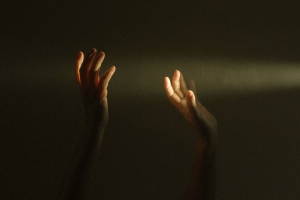news article
Faith and mental health
October 29, 2021 / By Alan Whitley, Certified Peer Recovery Specialist
Editor's Note: This article was originally published on umc.org.
I grew up where we often did not talk about faith and mental health in the same conversation. It almost felt like faith was welcomed into conversation but any conversation around mental health was averted. Imagine if we allowed faith and mental health to join forces and build a relationship?
Let me start: My name is Alan. I am a Christian (United Methodist), and I am in recovery from addiction and mental health. That feels good to say out loud. Try it sometime. Believe it or not, I am proud of my struggle and recovery from addiction and mental health. It scu lpted my relationship with God, my relationship with the universal church, and cleared a path for my vocation. Faith impacts our mental health, and our mental health can impact our faith.
lpted my relationship with God, my relationship with the universal church, and cleared a path for my vocation. Faith impacts our mental health, and our mental health can impact our faith.
One of my favorite quotes is by Ann Voskamp. Voskamp is a Canadian blogger and memoirist writing on themes of Christian women’s spirituality. She said, “Shame dies when stories are told in safe places.” I remember the first time I was able to share my story in church. I had recently been through my own faith deconstruction and reconstruction period. I was trying to “rethink” church. I did not know it then, but God led me to a faith community that eventually became a safe place where vulnerable conversations and holy listening take place. I was encircled by diverse Christians, and I was able to be vulnerable in this holy place.
It was a safe place for me to share about my struggle and recovery with addiction and mental health. I simply opened with, “I am Alan. I am a United Methodist, and I am in recovery from addiction and mental health.” I could feel the presence of God, and I could feel the shame slowly waning. It was in that moment that I began to recognize that my faith was no longer hindering my mental health. Instead, my faith strengthened my mental health. This is all because I was provided a safe place to tell my story.
Where is your safe place? Have you found a space where you can tell your story? We all have a story to tell, and we should be able to tell our story in a safe sanctuary.
This year has been tough. Covid-19 heightened depression, anxiety, substance use, and isolation. The mixed emotions of grief come and go. There is fear, and there are people who have lost loved ones. The pandemic has made it more difficult to find a safe place in this virtual world. Mental health comes in many forms for many different people. There are times when we must reach out for professional help and seek guidance from a licensed professional. One of my favorite T-shirts says, “Therapy is Cool.” Occasionally we just need someone to listen.
In 1 Corinthians Paul talks about holy listening. I like to believe holy listening is suspending judgement and inviting people to heal their wounds. Father Steve Wolf is a retired Catholic priest in Nashville, TN, and someone I consider to be a mentor and spiritual director. He defines scripture as one big love letter from God. It is comforting to know that no matter your wounds, no matter your struggle, and no matter your barriers, there is a God who knows you by name and loves all of who you are. As Christians we should emulate holy listening and love people just as they are. I wonder if that is how healing begins. Maybe, that is the value in building the relationship between faith and mental health.
Every Sunday morning, I give a welcome message to the congregation. I always say that no matter what you are feeling or just not feeling, you are welcome in this space. There might be some days that we just do not feel good and unwanted emotions may be present. The church should be inviting and safe for people to come as they are and begin to practice what it means to be a holy listener.
There is something so beautiful about holy communion. I know holy communion looks unusual right now and there is some grief around the loss of being able to receive as often due to Covid-19. Given the opportunity, I encourage you to reflect on each person as they line up and fold their hands to receive communion. It is not a line of people who are continuously happy, living in perfect harmony, forever spiritually mature, or addiction-free with no mental health diagnosis.
It is a line of people who sometimes feel sad, anxious, or scared. It is someone struggling with addiction, or someone who might be spirituality broken. It is someone lost in their faith, because they are grieving a death or going through a divorce. It is a parent who struggles with mental health and at times doubts the strength of their relationship with God. It is someone who sees a therapist, a psychiatrist, or a psychologist. It is leaders in the church who are struggling with stress and feeling overwhelmed. It is seekers trying to rethink what church looks like for them.
It is a variety of diverse people coming together to share in an open table no matter where they are in their faith or mental health journey. That is God’s grace. My hope is that we permit faith and mental health to build a relationship so that safe spaces can be created for people to share their stories and begin to heal. It begins with a conversation and the church creating a space where people know that it is ok to not be ok.